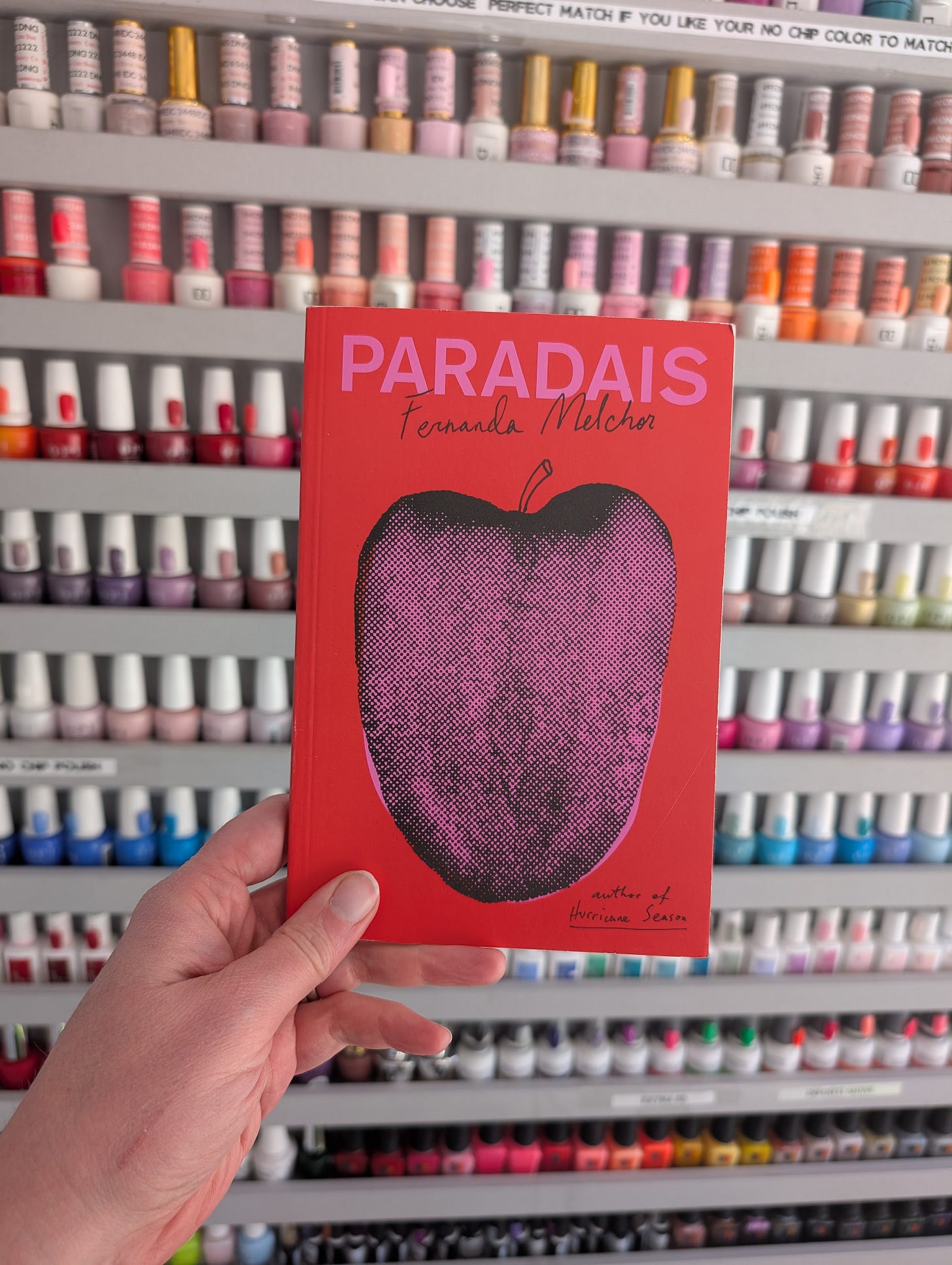You’ll spend this book in the mind of Polo, a teenage boy to whom all women are bitches and sluts, his ugly interior monologue only ever relieved by descriptions of stomach-churning violence. Sound like a great read?
It is a great read, infinite trigger warnings aside. How do you get away with such a voice-heavy book, when that voice is neither clever nor perceptive nor funny? It’s because we can see him as he can’t see himself. We notice his fear of women and sex, his feeling that if a woman is alluring in any way he thinks she’s trying to get him. He himself is aware of his own fear and disgust, but it doesn’t occur to him to question these feelings, which is especially ironic when the dangerous one is not the woman in question, but himself.
But danger is everywhere in this book. He envies his cousin Milton, who has been forced to work for the cartel. Milton describes his own abduction and torture, the obliteration of the life he was living before, the terrorism they force him to commit. The job makes him wish he were dead. But Polo, with his contempt and his confusion, envies his cousin, and wants the cartel to come and take him too. He thinks their violence could be an opportunity for him. And he will become a conduit for violence, but not the kind that brings opportunities.
Should you read it? I don’t want this to be like that time my friend told me to watch The Lobster but didn’t tell me what The Lobster was like.
Was this very upsetting book as good the second time as it was the first time? It was.
Do I love Fernanda Melchor? I love Fernanda Melchor.



